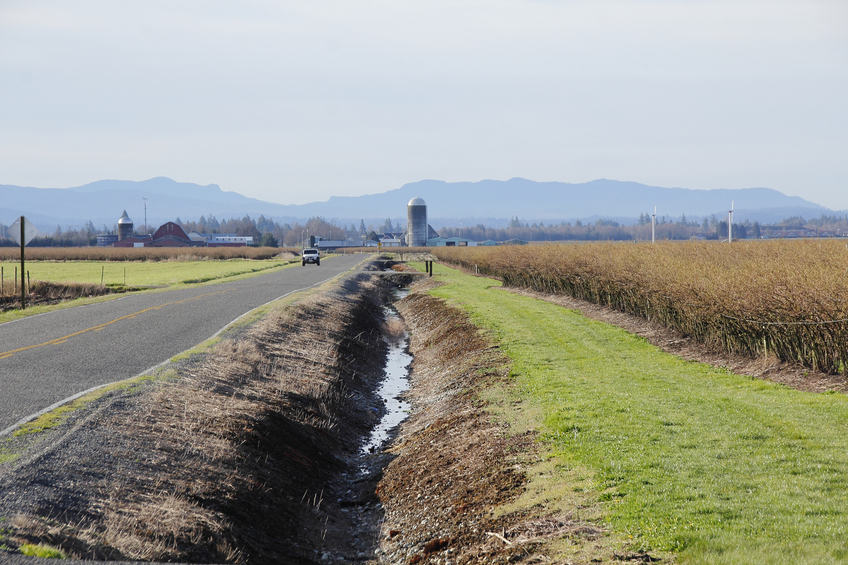ditch
(noun, verb)
/dɪtʃ/
 LISTEN
LISTEN


A ditch on the side of a road
A ditch is a narrow channel dug in the ground and used for draining or irrigating land or any natural channel or waterway. The verb ditch means ‘to dig a ditch’ and also ‘to crash a plane into water.’ Colloquially, to ditch means ‘to get rid of something’ or ‘to miss something without permission,’ such as school or work or just an unpleasant task. When you’re talking about someone, ditch means ‘to leave’ or ‘to escape from.’
Example sentences
- A ditch runs along the side of the road so it won't flood after heavy rain.
- The farmer has decided to ditch that field.
- The pilot could see he wouldn't be able to save the plane and decided to ditch.
- Ursula cleaned out her office and ditched a bunch of old books.
- Paul is in trouble for ditching math class again.
- Let's ditch the housework and go out for the day instead.
- Ann is upset because her boyfriend ditched her.
- The hero managed to ditch the bad guys who were chasing him by dodging into a busy market.
Words often used with ditch
last-ditch: said when something is your last chance. Example: “It was his last-ditch effort to get the job, and he failed.”
dead in a ditch: we sometimes say this when we imagine that something bad has happened to someone because we haven’t heard from them in a while. Example: “If my husband doesn’t answer my calls at night, I get worried and assume he’s dead in a ditch somewhere.”
Did you know?
Ditching school is also known as playing hooky (or hookey) and is the subject of the Lonesome Sundown song “You’re Playing Hookey,” which you can listen to here:
The classic movie about playing hooky is Ferris Bueller’s Day Off (1986).
Origin
Ditch dates back to before the year 900. It evolved from the Old English noun dīc, and later the Middle English word dich, meaning ‘trench,’ ‘ditch,’ ‘earthwork with a trench,’ or ‘moat.’ It can be traced back to the Proto-Germanic root dik-. Ditch is a regional variation, from the south of England. The northern variant became the word dike or dyke, which we still use today for many of the same meanings.
The verb comes from the noun, and dates back to the late 14th century, with the meaning ‘to dig a ditch’ or ‘to surround with a ditch.’ The meaning ‘to throw into a ditch’ first appeared in the early 19th century, and the figurative meaning (to discard or throw away) first appeared in the late 19th century. The sense of ‘crash a plane’ came from this figurative meaning, and was first recorded in the mid-20th century.
Word of the Day is released Monday through Friday.



